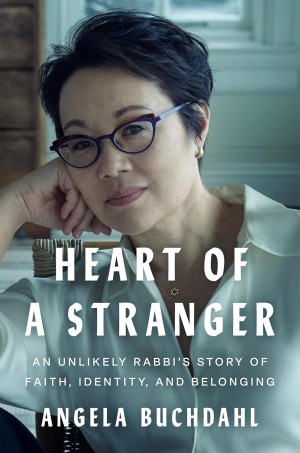Michelle Ephraim’s debut memoir, Green World, explores how after years of failures in her personal and academic life, Emphraim finds her calling in a field she knew very little about: the works of William Shakespeare.
Every memoir is a balancing act — between the broad and the specific, between the comic and the tragic, and between the events taking place in real time and the insights gleaned in hindsight. In Green World, Ephraim adds another measure of difficulty: she shares her life story while weaving in insights about the work and life of the most famous English-language writer of the past five hundred years — and she does so for a broad, nonspecialized audience. To raise the stakes even further, Ephraim, a professor of English and the daughter of Holocaust survivors, chooses to focus on what many consider “proof” of “Shakespearean antisemitism”: the portrayal of Shylock and his daughter, Jessica, in The Merchant of Venice.
At the beginning of the memoir, Ephraim recounts her experiences as an only child in a Washington, D.C. suburb. She portrays her reclusive parents with honesty and empathy, and describes the complexity of their relationship with skill and compassion. The chapters about her teenage years and early adulthood capture a fraught period. Here, Ephraim explains the choices she made — or let others make for her. By folding in passages from Merchant, she shows these choices in a new light and sets the stage for the next parts of her academic and personal journey.
Still, despite the many references to Shakespeare’s body of work, Ephraim makes sure that neither narrative overpowers the other. As a result, readers will easily and willingly follow along, regardless of their backgrounds or previous familiarity with Shakespeare (or lack thereof).
In literary criticism, and especially in Shakespeare studies, a “green world” is a space, usually in nature, to which characters escape, and where change can take place. Ephraim adopts this concept to frame her own transformation; but instead of a magic garden or the woods, the green worlds she visits are vast libraries packed with hidden treasures, and cold classrooms filled with mentors, friends, and, later, her own students. In Green World, Ephraim makes a convincing point: that these spaces, like Shakespeare’s literary counterparts, are filled with proto-magical qualities, and may even hold the very real possibility of change.
Vivian Cohen-Leisorek is a Guatemalan-Israeli writer whose work has appeared in The Tel Aviv Review of Books, BusinessWeek Online, and Underground, and publishes a popular Substack diary about the October 7 War. She currently working on a memoir about her year volunteering with injured soldiers in Israel’s largest hospital.





